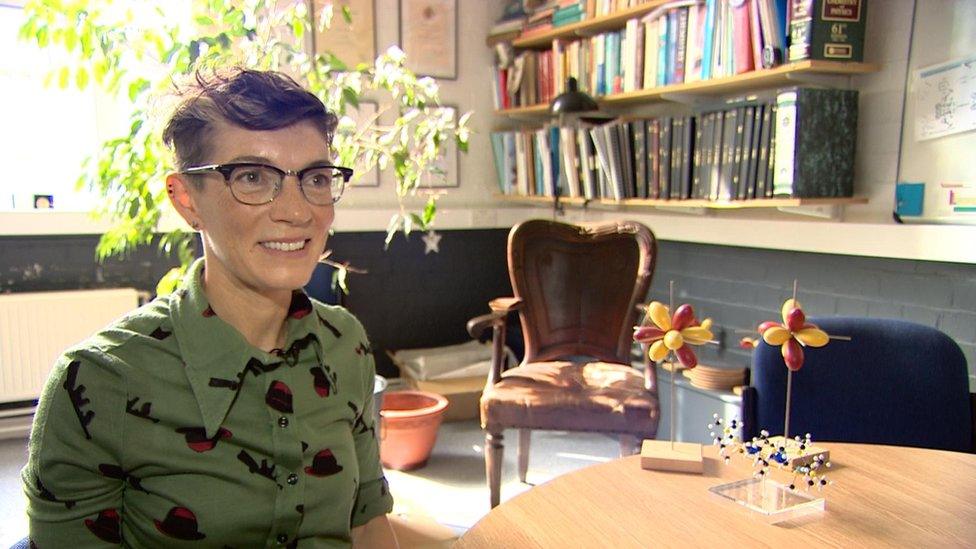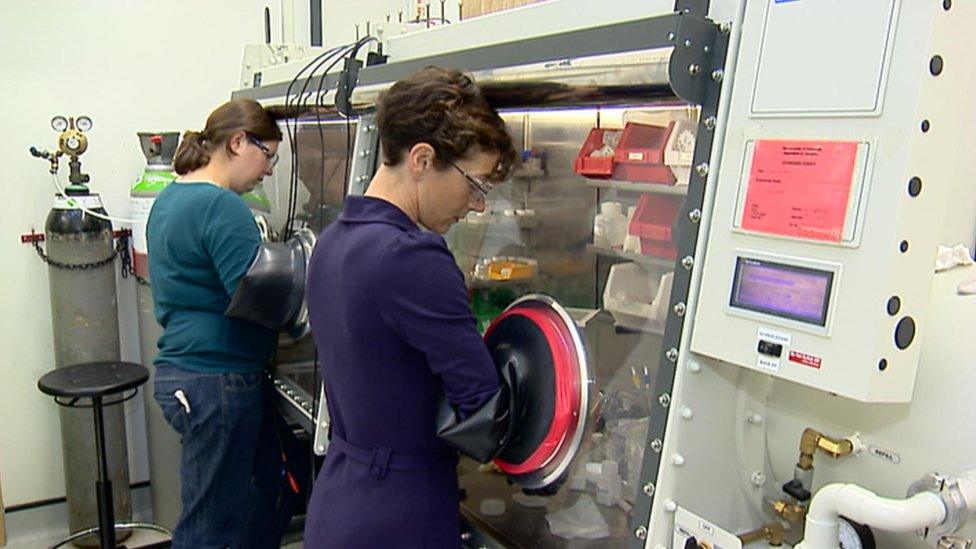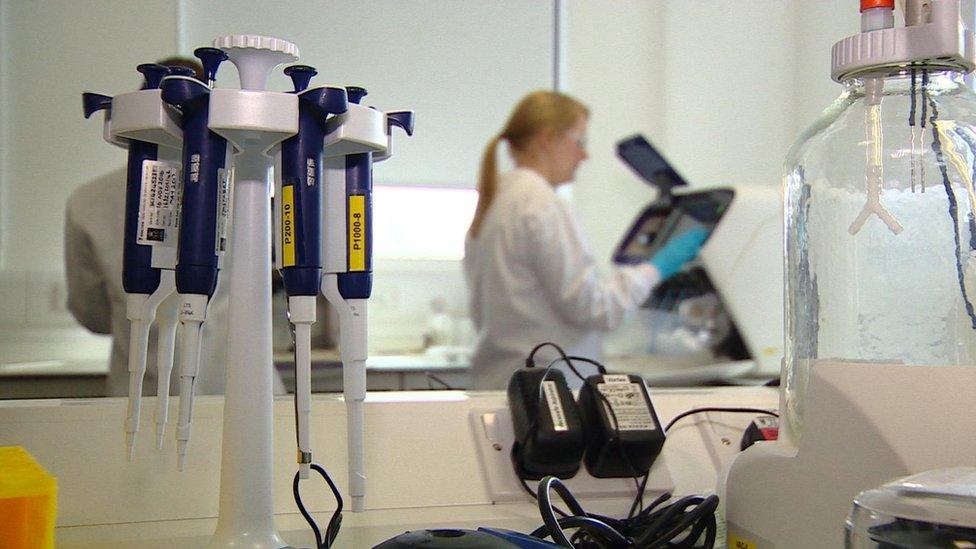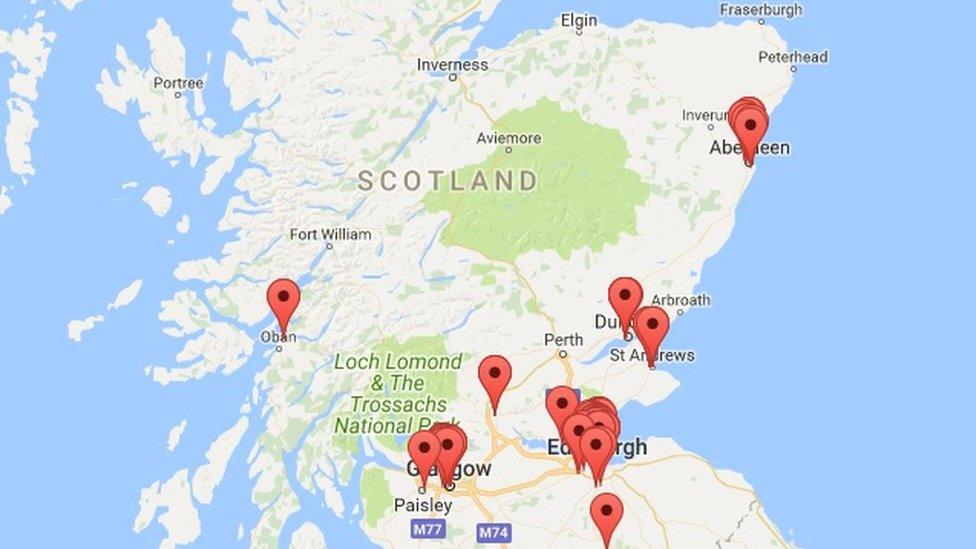Lonely at the top for women scientists
- Published

Professor Polly Arnold set up the network to help female scientists feel less isolated
A new network has been set up to support women scientists who find themselves isolated in senior positions.
Sci Sisters, external is the work of Prof Polly Arnold, who holds the Crum Brown chair of chemistry at Edinburgh University.
In the past she has worked to encourage more young women to consider careers in science.
Now she is attempting to address the issue that only 10% of the top jobs in Scottish science, technology, engineering and mathematics are held by women.
It's long been recognised that science has a problem with women.

Alison Hulme is the freshly-minted professor of synthesis and chemical biology at Edinburgh University.
As she's worked her way to the top of her profession, she's accumulated some grim tales of scientific sexism in academia and industry.
"When I asked a pharmaceutical company what would you do about the retention of women in your company, the HR person said 'well we don't employ many women and disabled people'.
"Right through to interviewing for an academic position, where I was asked how it would feel working in a department of married men."
That was, Prof Hulme concedes, 15 to 20 years ago and many of those attitudes have been left behind.
But women scientists - and technologists, engineers and mathematicians - who rise in education, industry and government find another problem: it can be lonely at the top.
Prof Lesley Yellowlees made history when she was the first female president of the Royal Society of Chemistry from 2012 to 2014:
"As you rise to these senior levels you do look around and realise that you are quite often the sole female in a room full of men - and very often it would be nice to have another female face there."

Polly Arnold has set up Sci Sisters to try to overcome that isolation.
She says science's gender imbalance is the product of society, not individuals.
"Even if you don't want to treat people differently, people still do," she says.
"People behave differently and treat women differently to men.
"This is particularly noticeable in science where the social norms are that you're more likely to be a natural leader if you're taller, which would favour a man.
"And there's another example that shocks me always.
"When women have been talking for 35% of the time, both the men and the women in the room think that the women are dominating the conversation."
Interactive map
Prof Arnold is receiving funding from the Royal Society of Chemistry to help set up her scientific sisterhood.
At the heart of Sci Sisters is an online map.
Every virtual pin on it represents a senior Scottish scientist or engineer who's volunteered to support her otherwise isolated colleagues.
"If you were a chemist and only looking for chemists, I did the calculation and you would have to travel 38km to find the next senior chemist.
"This way, I can go have a cup of coffee with another chemist or another physicist or somebody in business and somebody who's not quite in my area - and maybe we can discuss the issues that we have."

An interactive map allows female scientists to find out where others are working
Outnumbered though Scotland's women scientists are, there are many pins on the map already.
Prof Arnold says that could one day rise to 5,000, with many women holding senior positions in Scotland's burgeoning life sciences industry.
She also points to distilling - because whisky-making is as much a science as an art.
Prof Yellowlees says that for as long as women remain a minority in science, the planet is missing out on an opportunity to solve global challenges like providing clean water for everybody or keeping the lights on.
"If we're going to tackle those problems - and quickly - then we're going to need everybody to pitch in.
"If only 10% of the population is engaged at the senior level, then think how many people are missing from that.
"We already know that if you're going to crack a problem quickly - and crack it efficiently and effectively - then you need a diverse team to deal with that."